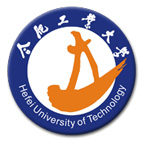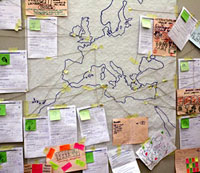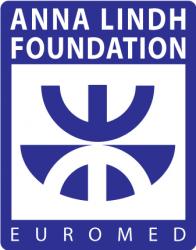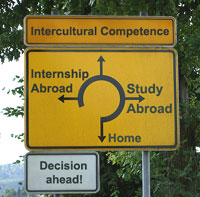
The two people we will be hearing from in this show have both come half way round the world to visit Europe and such a long distance seems to lead to very strong contrasts – not always in those aspects which you would expect. We’ll be hearing from Cao Lei, a biology lecturer from Heifi in China, here on her first visit to Europe.
We’ll also be hearing from Minhaaj Ur Rehman, from Pakistan, who recently arrived in Sweden to do an MBA even though he already has an MBA from Pakistan but apparently a foreign MBA will be much more impressive to any future employers back home. One of the major differences which was immediately apparent is the relationship between the students and their teachers. It’s often surprising to us who live here what people from outside the area notice so I had to smile when Minhaaj mentioned how considerate he found drivers in Sweden to be.
absolutely exhausted
When Cao Lei from China visited Europe recently she found that the Netherlands was very relaxing and peaceful in spite of it being one of the most densely populated countries in the world. But once she started to talk about the normal 18-hour school day in China for her 13 year old daughter I began to understand how much the visit to Europe must have represented a change of gear for her.
absolutely freezing
It is a cliché for a Brit like me to talk about the weather but the weather has certainly made a deep impression on Minhaaj Ur Rehman who came from Pakistan to do an MBA in Sweden and not in southern Sweden but in northern Sweden, Umeä where already in October the temperature was close to zero (centigrade that is). And it’s interesting that Minhaaj points out the lack of congestion and people as a plus, just as Cao Lei did.
absolutely spoiled for choice
If you don’t speak a language which uses script then you have probably never given a thought to the way in which a computer produces ideograms such as those used in Chinese and Japanese. So when Cao Lei from China visited us recently it was fascinating to watch how she could turn Chinese written with western letters into Chinese script using good old Word.
absolute double?
Minhaaj Ur Rehman is from Pakistan and already has an MBA so why is he in Sweden doing another MBA? Is this an absolute double? It turns out that even if you are reading the same books there are some very good reasons for re-doing the course and he gets to experience some very different approaches to education along the way.
By the way if you have any comments or suggestions you’re always welcome to contact us through our blog at www.absolutely-intercultural.com and leave a comment. We love following up on contacts or just reading about your reactions and experiences.
The next show will be coming to you from Germany with Laurent Borgmann on November 27. So until then, stay tuned won’t you?
So long…stay tuned!
The host of this show is: Anne Fox
Editor: Dino Nogarole


 Even if we expect differences when we travel or meet foreigners in our own countries – the best and most intensive intercultural learning is always accompanied by small culture shocks. Our show today will focus on the
Even if we expect differences when we travel or meet foreigners in our own countries – the best and most intensive intercultural learning is always accompanied by small culture shocks. Our show today will focus on the 
 Today we will focus on the
Today we will focus on the  The unifying theme for this show is learning. Firstly learning by experience. Remember Greg Houfe from the UK who talked to us before starting a consultancy project in Denmark? As we’ll hear later he’s now not quite so sure that business practices are pretty universal within Europe. We’ll also be hearing about a very simple way of motivating people to improve their English by getting them to talk about aspects of their home culture.
The unifying theme for this show is learning. Firstly learning by experience. Remember Greg Houfe from the UK who talked to us before starting a consultancy project in Denmark? As we’ll hear later he’s now not quite so sure that business practices are pretty universal within Europe. We’ll also be hearing about a very simple way of motivating people to improve their English by getting them to talk about aspects of their home culture. Today we have focused on innovative initiatives for intercultural training in the Euro-Mediterranean region and around the world. Please listen to some unusual and innovative approaches to engaging young people in intercultural dialogue.
Today we have focused on innovative initiatives for intercultural training in the Euro-Mediterranean region and around the world. Please listen to some unusual and innovative approaches to engaging young people in intercultural dialogue.

